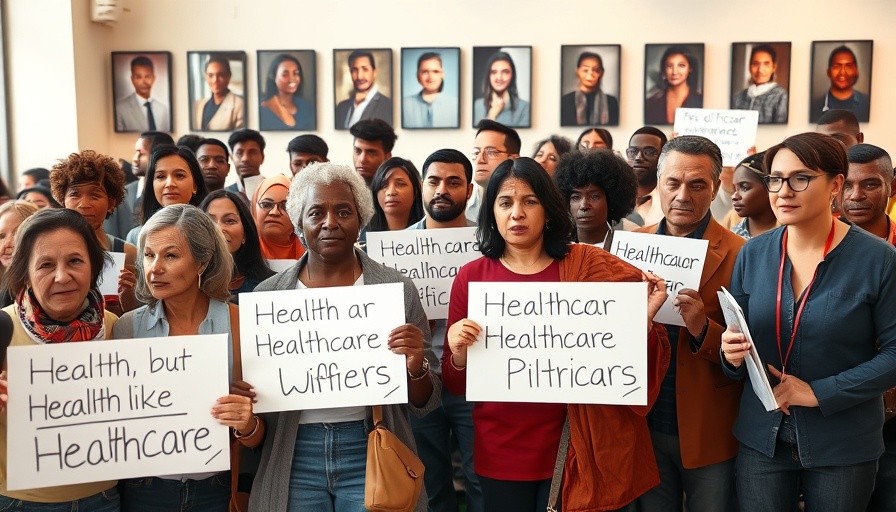
Understanding the Impact of Work Requirements on Medicaid for Older Adults
As the landscape of healthcare in America shifts, proposed policies surrounding Medicaid, particularly those instituting work requirements, have raised significant concern, particularly among older adults. With nearly one in five Americans aged 50 to 64 relying on Medicaid for health insurance, the implications of these policies could be deeply detrimental for an aging population already vulnerable to a multitude of health and economic challenges.
The Disproportionate Draw on Older Adults
Work requirements create barriers for older adults, many of whom already face age discrimination in the workforce, especially post-COVID-19. A staggering 86% of non-working Medicaid beneficiaries aged 50-64 report health conditions that prevent them from securing employment. For those like Jeff, whose Medicaid accessibility was critical following serious health issues, this legislative movement represents a potential lifeline turning into a noose.
Moreover, about half of adults in this age group who depend on Medicaid face disabilities that would complicate job issues, creating a system where proving inability to work due to health concerns could be a bureaucratic nightmare. In essence, while the intention behind work requirements may be regulatory, real-world consequences could lead to increased hardship for those already struggling.
A Safety Net Under Strain: The Role of Caregivers
In addition to targeting older adults directly, work requirements would also affect many family caregivers. Over 4 million family caregivers rely on Medicaid for their health coverage. They play a crucial role in supporting older adults, allowing many to stay at home rather than transition to nursing facilities. The potential loss of Medicaid due to job requirements could jeopardize both their health and the health of those they care for.
Many caregivers work unpaid while managing their own health issues. Requiring them to document their caregiving or secure paid employment to maintain their health insurance not only adds unnecessary stress but could undermine the essential support system they provide.
The Economic Fallout of Medicaid Cuts
Implementing these work requirements would not only sabotage the safety net for seniors and caregivers but also strain the healthcare system at large. Access to Medicaid often translates to timely healthcare, which, in turn, supports community health and well-being. The proposed red tape would divert essential resources away from health and social care services, consequently leading to poorer health outcomes for a significant portion of the population.
Chronic conditions and disabilities do not discriminate; the repercussions of losing Medicaid coverage ripple through families and communities. Without affordable healthcare, many older adults may forgo necessary treatments, compounding health issues and incurring additional financial burdens on healthcare systems.
Shaping Future Conversations: Policy Implications and Community Care
The ongoing discourse surrounding work requirements in Medicaid fosters broader reflection on how society supports vulnerable populations. The trend shows a pressing need for advocacy and understanding as older adults navigate a complex system designed to provide security, not additional burdens. As communities evolve, the emphasis should be directed toward creating policies that genuinely support aging individuals and their families.
Moreover, states should explore innovative solutions that address the needs of older adults. Embracing telehealth options and community-based programs could enhance support without imposing punitive measures that negatively impact the very individuals they intend to assist.
A Call for Advocacy
Awareness of these issues is vital. Engaging in conversations about Medicaid work requirements can drive legislative change and protect essential health resources for older adults. Individuals experiencing these challenges should seek local advocacy groups, engage with policymakers, and work collectively to share their stories. Together, communities can ensure that the Medicaid program continues to be a resource that upholds the dignity and health of their older populace.
If you or someone you know is affected by these issues, consider reaching out to local advocacy organizations focused on health care policies affecting older adults. Tackle these pressing concerns to manifest change today!
 Add Row
Add Row  Add
Add 




Write A Comment